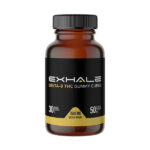In January 2019, CBD was added to the EU Novel Food Catalogue. This move has caused confusion among German authorities, who were unsure whether CBD-containing products were safe for consumption. However, the German Administrative Courts have now clarified the legal ambiguity, ruling that CBD-containing food is indeed a Novel Food. Novel foods, such as CBD-containing food supplements, are only able to be sold once they have been approved by the European Commission.
Germany’s CBD consumption rates are similar to those of other European countries, but there is still a lack of public awareness about CBD. This may be due to the fact that the public in Germany is less familiar with the plant than the average European population. In addition, they are less aware of its medical benefits, which makes it difficult for them to use CBD products. However, those who use CBD products are generally confident about the product’s effects, though there is still some uncertainty about brand name and dosage.
Cosmetics containing CBD are legal to sell in CBD Shops in Germany, and they must comply with the provisions of German Narcotics Law. The products contain less than 0.3% THC, which means that they cannot be used to induce intoxication. Moreover, these products do not cause adverse health effects, so they are perfectly safe to use. However, they should not be consumed by people who are not legally permitted to use cannabis products.
Although Europe is still at an early stage, the CBD industry is set to be the largest CBD market in the world in a few years. Germany has recently legalized medical cannabis and is in the process of legalizing adult use. The coalition government is expected to pass a draft law by the end of this year. This demonstrates that Germany has big plans for its cannabis industry. CBDD is making inroads in the European CBD market through a strategic partnership with Home of CBD.
As more consumers become aware of CBD, the market is expected to become increasingly competitive. As a result, new players are entering the market in an attempt to capture the market. The overall CBD market in the EU is estimated to be EUR1.6 billion by 2020, and growth is projected at 18.5 per annum.
CBD is available in Germany in a variety of forms. However, raw hemp is still illegal and therefore not available in the country. The country’s law only allows the sale of products containing less than 0.2} THC. In fact, raw hemp flowers look very similar to marijuana buds, making it difficult to differentiate them.
Although only limited data is available on the prevalence of CBD use in Europe, the results of one study indicate that it is a growing trend in the country. According to this study, 4.3 of adults in Germany have ever used CBD. In other European countries, the percentage of people who have used CBD varies from 10.9 to 14.






















Add Comment